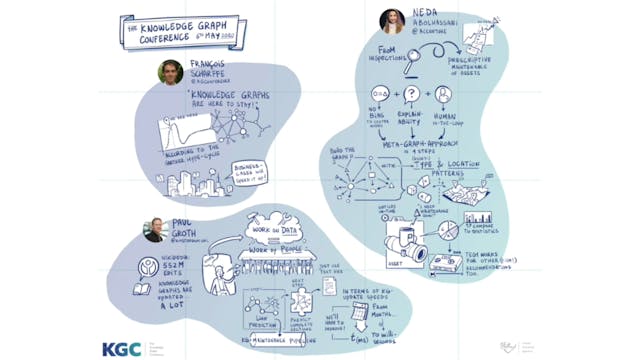Tutorial Rapid Knowledge Graph Development with GraphQL and RDF Databases
KGC 2020
•
3h 57m
The enterprise knowledge graphs help modern organizations to preserve the semantic context of abundant accessible information. They become the backbone of enterprise knowledge management and AI technologies with the ability to differentiate things versus strings. Still, beyond the hype of repackaging the semantic web standards for enterprise, few practical tutorials are demonstrating how to build and maintain an enterprise knowledge graph. This tutorial helps you learn how to build an enterprise knowledge graph beyond the RDF database and SPARQL with GraphQL protocol. Overcome critical challenges like exposing simple to use interface for data consumption to users who may be unfamiliar with information schemas. Control information access by implementing robust security. Open the graph for updates, but preserve its consistency and quality. You will pass step by step process to (1) start a knowledge graph from a public RDF dataset, (2) generate GraphQL API to abstract the RDF database, (3) pass a quick GraphQL crash course with examples (4) develop a sample web application. Finally, we will discuss other possible directions like extending the knowledge graph with machine learning components, extend the graph with additional services, add monitoring dashboards, integrate external systems. The tutorial is based on Ontotext GraphDB and Platform products and requires basic RDF and SPARQL knowledge.
Up Next in KGC 2020
-
Q&A | Francois Scharffe, Neda Abolhas...
Q&A of the first session of day 1. Here our own Francois Scharffe, Neda Abolhassani from Accenture Labs, Paul Groth from the University of Amsterdam and Ron Bekkerman from Cherre answer some questions from the audience.
-
Q&A | John F Sowa and Vassil Momtchev
Francois Scharffe leads the Q&A between Vassil Momtchev from Ontotext and John Sowa from Kyndi.
-
Workshop | Personal Health Knowledge ...
Electronic health records (EHRs) have become a popular source of observational health data for learning insights that could inform the treatment of acute medical conditions. Their utility for learning insights for informing preventive care and management of chronic conditions however, has remaine...



